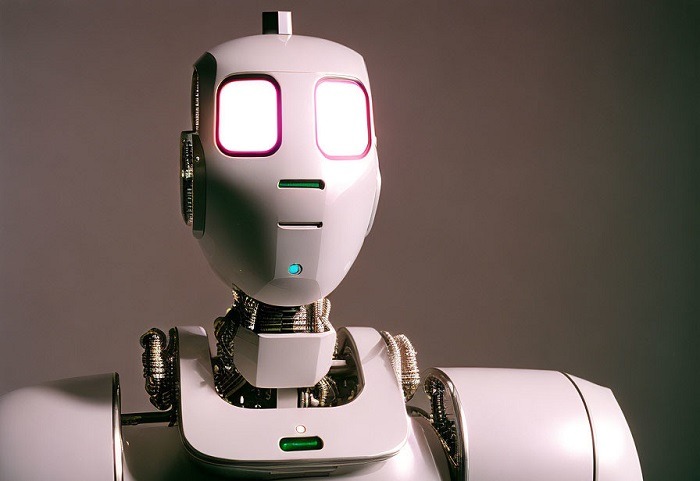The downsides of artificial intelligence
In the digital world we live in, technology has been a great ally in our daily lives. However, with the arrival of new tools based on artificial intelligence (AI), our relationship with the digital has been elevated to a new level. But while this technology has a positive side, artificial intelligence also has some downsides.
Among the downsides of artificial intelligence, we can highlight ethical and moral issues, lack of cognitive skills, high implementation costs, and the threat to jobs currently occupied by human beings.
Despite the great positive impact that this new technology has brought to society, does the use of artificial intelligence only have positive aspects? In this article, you will learn about the downsides of artificial intelligence, so that you can assess whether it is worth using it or not.
What is artificial intelligence?
We have already explained here on AppTuts what artificial intelligence is and how it works. Basically, it is an area that seeks to create programs and systems capable of performing tasks that previously could only be done by humans. This is possible thanks to the use of mathematical models that allow the creation of solutions that can be applied in different areas of life, such as industry, marketing, and entertainment.
These systems are also able to learn from information collected in databases, allowing them to make accurate decisions and improve their performance over time.
What are the downsides of Artificial Intelligence?
Although it is more common to talk about the advantages of using this technology, it is also important to know the disadvantages that can arise with its use. Now, we will present a list of some downsides and concerns around the use of artificial intelligence.
1. Ethical and moral issues
The use of artificial intelligence raises several ethical and moral questions, such as the possibility of reproducing prejudices and discrimination already present in society.
As an AI system does not have its own opinion but is programmed to make decisions based on information collected in databases, it is possible that this information is influenced by prejudices and stereotypes already present on the internet and in society as a whole. This can lead to results that are discriminatory or unfair to certain groups or individuals.
Another point we need to consider is the issue of responsibility for decisions made by autonomous systems. Artificial intelligence can make decisions that affect people’s lives, and this can be worrying if those decisions are not made with human ethics in mind.
This is a complex issue because machines do not have the ability to understand or apply ethical principles. Therefore, it is important for developers of artificial intelligence systems to carefully consider the ethical implications when these systems are designed.
2. Lack of cognitive skills
Although these systems can perform complex tasks and are increasingly intelligent with each update, the cognitive capacity of machines cannot be compared to the cognitive abilities of humans.
An artificial intelligence system is not capable of understanding the subtlest nuances of human language, such as humor, irony, or sarcasm. In addition, understanding the most refined issues of the human mind, such as feelings, motivation, and the influence of the social environment is very difficult for AIs.
These cognitive limitations of artificial intelligence can be worrying in situations where understanding these aspects is crucial for decision-making. For this reason, it is essential that there is human supervision regarding the use of these systems.
Even though these limitations exist, AIs can do amazing things, like these 4 websites to create texts with artificial intelligence.

3. Threat to jobs
This is certainly one of biggest downsides of artificial intelligence. One of the biggest fears surrounding the use of AI in professional tasks has been the threat it poses to jobs. As this technology develops, many of the tasks that were previously performed by humans can be automated, which can lead to the replacement of workers by machines.
This impact is nothing new, as can be seen in the industry, where robots have long been used to perform repetitive and dangerous tasks. However, with this technology becoming more popular and its use becoming more widespread across all professional segments, sectors that require intellectual skills are likely to be impacted by artificial intelligence as well.
There is a consensus understanding that the replacement of workers by machines can also lead to job losses and an increase in economic inequality. Faced with this challenge, governments, companies, and society in general need to discuss ways to mitigate the negative impacts of applying this technology.
However, not everyone agrees that AIs have the potential to displace jobs. For many, they are just tools to increase productivity and should be used.
4. Greater reliance on technology
Although technology has brought many benefits to society, dependence on it is a real problem in many sectors. When it comes to artificial intelligence, this dependence can be even greater, since it is able to perform tasks in our place and save us time.
Some people get so used to using artificial intelligence that they end up losing the ability to perform tasks on their own. This behavior, in addition to having a negative impact on personal development, can lead to the loss of important skills and competencies.
In addition, excessive use of technology can lead to physical and mental health problems. Staying interacting with technology for many hours straight can lead to the development of symptoms such as headaches, eyestrain, and repetitive strain injuries. Mental health can also be damaged due to social isolation.
5. High implementation cost
Although tools that employ artificial intelligence may seem simple and intuitive, their creation and implementation involve very high costs for companies. This includes significant investments in specialized hardware and software, which can, in many cases, make their use unfeasible.
For a new service based on artificial intelligence to be created, it is necessary to develop custom algorithms to meet the specific needs of that service, which can be a complicated task and require significant resources. Furthermore, implementing AI may also require specialized hardware and software.
However, the costs involved in maintaining a specialized team in the implementation and maintenance of an AI tool can represent one of the biggest expenses that a company will have if it decides to offer this service.
6. Need for highly specialized professionals
Developing and implementing artificial intelligence systems requires a complex set of specialized skills and knowledge. An AI tool development team may include software engineers, data scientists, machine learning specialists, and other professionals.
These professionals must have deep knowledge of machine learning algorithms, neural networks, natural language processing systems, and other related disciplines, which can be even more complex and advanced.
In addition, it is important to highlight that this knowledge cannot be limited to the theoretical understanding of these areas. You need hands-on experience in programming and solving complex problems in order to implement and optimize truly efficient and disruptive artificial intelligence systems.
The lack of these highly qualified professionals in the job market today may lead to a slowdown in the pace of advancement of this technology.
Is artificial intelligence really a threat?
Artificial intelligence, like any other technology, has its pros and cons. While AI itself is not a threat, its misuse can be worrisome. Unfortunately, malicious individuals and cybercriminals can use this technology for nefarious purposes, such as creating deepfake videos, spreading fake news, and even developing new types of viruses.
Artificial intelligence is an important technology that can bring great benefits to society. However, it is essential that this evolution takes place at a pace that allows human monitoring to mitigate possible negative impacts. In addition, laws and regulations may be needed to address the ethical issues associated with this new technology.





